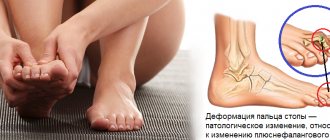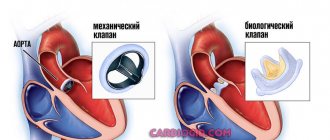Numbness is a loss of sensation in any part of the body.
Numbness may be accompanied by a tingling sensation, goosebumps, burning, tightness of the skin, as well as a feeling of cold in the numb part of the body. The most common complaints are numbness of the extremities - hands (sometimes they talk about numbness of the fingers) or legs. We perceive numbness as a loss of signal: nerve impulses from the numb area do not reach the brain. In most cases, the cause is local in nature and consists of damage to peripheral nerves or a violation of local circulation, as a result of which the nerves are deprived of the necessary nutrition. However, sometimes numbness is a symptom of a central nervous system disorder.
Why do my hands go numb?
Doctors believe that if a person is young, the cause is in the nervous system, and if an elderly person, it is in the blood vessels or endocrine system.
Are common
In most cases, both hands may go numb due to illness.
Household
The reasons for numbness are simple - a person sat in an uncomfortable position, which pinched the nerves and blood vessels. This disrupted blood flow and impulse transmission. This occurs most often in the following cases:
- The man raised his arms above his chest.
- He was carrying a heavy bag.
- Wears tight clothes.
- Performs work manually.
- Sleeps on one side.
If negative factors are eliminated in a timely manner, the discomfort will also disappear. But if it becomes a habit, chronic diseases may appear.
Problems with the circulatory system
Blood enters the arms through the aortic arches, passing through the chest cavity. The following arteries are found in the arm:
- Radial.
- Elbow.
- Palmar.
There are many small vessels in the palm. And if some stop functioning, others replace them. If the body is healthy, sensitivity will be restored quickly.
But if pathologies are present, some symptoms last a long time. Vascular thrombosis is considered a dangerous disease. If the blood clot is in the artery that supplies the arm, the person will lose sensation from the fingers to the entire arm.
Numbness may result from vascular aneurysms. These are small formations that fill with blood, pinching the nerves. Another disease is vasopathy or angiopathy. The tone of the vascular walls decreases, the lumen narrows, and blood circulation is disrupted. This causes ischemia. The tissues that feed from these vessels lack oxygen.
Lack of vitamins
Numbness may occur if the body does not have enough vitamin B or minerals. At the same time, a person quickly gets tired, and his memory deteriorates. And if there is not enough vitamin A and E, the performance of bone marrow cells is impaired, and the development of red blood cells and other blood cells slows down.
Atherosclerosis
This is a disease in which cholesterol accumulates in the blood vessels. Lipids do not allow normal blood circulation. The symptoms of the disease are as follows:
- Cramps when relaxing.
- Insomnia.
- Itching and burning.
Hands look pale and nails become thicker. Hair density decreases.
Raynaud's disease
A common disease in women. The small arteries of both arms are affected. The disease usually occurs in car drivers and pianists.
Numbness appears as a result of spasms in the blood vessels. The skin turns pale, becomes colder, and sensitivity worsens. As soon as the spasm passes, the skin returns to its original state. But relapses are possible, sometimes every day.
Herniated discs
This can also be a cause of numbness. If a person experiences numbness in his fingers, changes occur in the neck area. There are signs by which a hernia can be identified:
- Arms and shoulders hurt.
- Blood pressure rises.
- My head is spinning.
Metabolism problems
Typically the causes are the following diseases:
- Diabetes.
- Cholesterol deposition.
- Lack of calcium and potassium.
In the latter case, bruises appear on the person’s body, and the wounds do not heal well.
Nerve problems
The hands have many nerves that control sensation. The system contains the following nerves:
- Elbows.
- Radiation.
- Musculocutaneous.
- Axillary.
- Median.
If nerve function is impaired, impulses are transmitted more slowly. There may also be pain in the arm or a burning sensation.
Carpal tunnel syndrome
Neuralgic disease, when the fingers go numb and the hand hurts. The cause of the disease is compression of the median nerve between the elements that form the wrist and hand. Often found in older women.
Diabetic neuropathy
Another disease that causes numbness in your hands is diabetes. At the same time, a person may feel tingling in the limbs, cramps, and muscle weakness. Sometimes severe pain appears in the muscles, similar to an electric shock.
Osteochondrosis
When the spinal cord nerves are compressed, numbness may occur.
Stroke
If a cerebral artery ruptures or thrombosis occurs, there is a risk of stroke. Usually a person loses sensitivity in the limb for which the damaged hemisphere is responsible. First, the little finger and ring finger go numb. A stroke can also be identified by other symptoms:
- Muscle weakness.
- Difficulty breathing.
- Incomprehensible speech.
- Deterioration in coordination of movements.
- Dizziness.
- Increased pressure.
- Numbness of fingers.
A numbness in the finger may also indicate an illness:
- Little finger of the left hand – heart problems, for example, heart failure.
- Unnamed - compression of the nerves in the elbow area. Perhaps they are injured.
- Thumb. Osteochondrosis or vitamin deficiency.
- Pointing. Diabetes mellitus, joint inflammation or diseases of the endocrine system.
- Average. Raynaud's disease or spinal diseases.
Numbness can also occur with fungal infections.
Chronic kidney disease
Uremia may develop if the kidneys are affected. Toxins begin to accumulate in the blood, which affects the nerves. As a result, the limbs go numb. If the disease is advanced, only an organ transplant will help.
Injury
Hand numbness can occur after injury:
- Tendon rupture.
- Stretching.
- Fracture.
Injuries usually result from frostbite or shock. Blood circulation is disrupted, which leads to symptoms.
Other diseases
There are other diseases that can cause numbness in the hands. For example, HIV, which activates an infection that affects the nerves.
Which doctor should I contact?
First of all, when attacks of numbness in the hands occur, a person should seek advice from a neurologist (neurologist). It would also be a good idea to have an examination with a vertebrologist who can diagnose the presence of problem areas in the cervical spine.
In a number of clinical cases, the patient may need consultation from related specialists, namely: an orthopedist, therapist, cardiologist, endocrinologist or vascular surgeon. If a neurologist decides that there is a need to see doctors from other specialties, he will definitely refer the patient to the right specialists.
It is important to understand that the true cause of the development of the pathological condition can only be determined by a qualified doctor with experience in this field. Therefore, the only correct solution to the problem of numbness of the upper extremities is its timely diagnosis and treatment by specialists.
Numbness of the left hand
Paresthesias are very dangerous, since they can appear due to diseases of the cardiovascular system.
Pre-infarction state
The left arm may go numb if a person has angina. The provoking factors are as follows:
- Smoking.
- Wrong nutrition.
- Stress.
- Fatty and spicy foods.
The symptom begins with the ring finger. Then he moves to the little finger.
There are other symptoms that may indicate a pre-infarction condition:
- Pain in the heart, radiating to the collarbone or jaw.
- Anxiety, cold sweat, fear of death.
- Weakness.
- Insomnia.
- Dizziness.
Treatment
For each patient, treatment is developed individually based on diagnostic results and detected diseases. In most cases, they begin by prescribing conservative therapy appropriate to the situation. It may include medication, physical therapy and exercise therapy.
Drug treatment may include drugs from different groups. They are selected based on the causes of numbness in the fingers, but they must take into account concomitant diseases, age and other characteristics of the patient. Typically used:
- NSAIDs - prescribed during an exacerbation of neuropathy to reduce the intensity of pain and eliminate swelling of soft tissues;
- corticosteroids - indicated for severe inflammatory processes, as well as complex neuropathy;
- B vitamins - used to improve the transmission of bioelectric impulses along nerve trunks;
- antiplatelet agents - prescribed to reduce blood viscosity and improve blood circulation;
- calcium antagonists - used to increase the lumen of blood vessels, which is indicated for Raynaud's syndrome;
To increase the effectiveness of drug treatment, physiotherapeutic procedures are often used. The most effective for neurological disorders are:
- electrophoresis;
- phonophoresis;
- laser therapy;
- UHF;
- electromyostimulation;
- applications with paraffin;
- ozocrete treatment;
- mud therapy.
To eliminate numbness, an individually developed complex of exercise therapy must be prescribed. It helps to develop the joints of the hands, activate blood circulation and relieve muscle tension. As a result, tissue trophism and innervation of the fingers improves. But exercise therapy should be done systematically, devoting the proper amount of time to gymnastics every day.
How to treat numbness
First, the doctor must do an examination. It's best to see a therapist. Tests are ordered. Depending on the results, the patient may be referred to one of the following specialists:
- Neuropathologist.
- Endocrinologist.
- Phlebologist.
After this, accurate diagnostics are performed in the form of MRI, electrocardiogram and x-ray.
Treatment also depends on the source of the disease. If the pathology is associated with the musculoskeletal system, massage and therapeutic baths are prescribed. Medicines also prescribed:
- Gel, ointment or cream.
- Painkiller.
- Anti-inflammatory drugs that do not contain steroids.
If the cause of numbness is a lack of vitamins, it is necessary to take a series of vitamins and minerals based on the elements that the body needs.
Note! Some vitamins should only be taken in combination with others.
Traditional therapy can also be effective; it complements the main treatment. For example, for kidney disease and diabetes, a diet is prescribed, and for injuries, immobilization is prescribed.
Diagnostics
The etiology of hand numbness is determined by a neurologist. In case of vascular pathology, consultation with a vascular surgeon is required. The specialist examines the history of the disease, assesses the condition of the limb, pulse in the arteries, identifies swelling, signs of inflammation, and other changes. A neurological examination includes the study of sensitivity, reflexes, and muscle strength. Based on the results, the following are assigned:
- Electrophysiological studies
. ENG, EMG, evoked potentials are carried out to differentiate damage to nerves, muscles and structures of the central nervous system, to clarify the location and degree of damage to the nerve trunk. - Radiography
. Performed for injuries, suspected compression of nerves by bone growths, neoplasms. Visualizes fractures, dislocations, osteophytes, bone deformities. - Vascular studies
. Informative for scalene muscle syndrome, Takayasu's disease, thromboangiitis obliterans. To determine the localization and severity of occlusion, vascular ultrasound, angiography, and aortography can be performed. - Other visualization techniques
. Computed tomography and magnetic resonance imaging are performed for diseases and traumatic injuries. Prescribed in case of ambiguous results of basic studies and planning of surgical interventions. - Lab tests
. Recommended for confirming the infectious and dysmetabolic genesis of polyneuropathies and diagnosing Takayasu’s disease.
Acupuncture
Emergency
You need to pay attention to numbness in your hand, especially if it happens suddenly. This may be a signal of a dangerous illness - thrombosis, stroke or heart attack. There are signs that may indicate the likelihood of these diseases:
- The numbness is constantly increasing.
- The pain in the arm intensifies.
- Increases blood pressure.
- Speech is impaired.
- Facial asymmetry.
- Paralysis.
- Pain radiating to the jaw and back.
- Feeling of tightness in the chest.
- Dyspnea.
- Nausea and vomiting.











